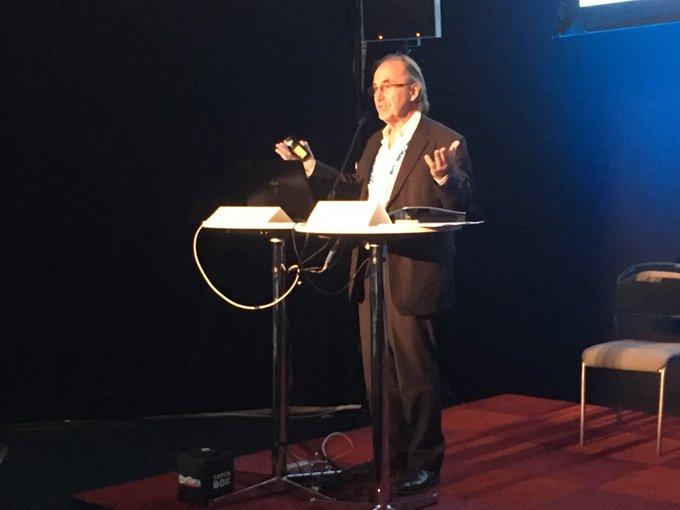‘If someone wants to take more, someone else has to take less’ – New Perspectives on Sharing Water

Prof Mike Young at the World Water Week 2019
The United Nations (UN) Sustainable Development Goal 6 Synthesis Report on Water and Sanitation (UN, 2018) states that if pressures on water resources continue, 52% of the world’s population will be put at risk by 2050.
Water is scarce and getting scarcer. That is, by 2050, more than half of the world will be living in places where water supplies are no longer abundant. Defined variously as a lack of water security, water stress, water scarcity, a water shortage, and/or a drought – in all such cases the search for a solution must include the development of robust ways to manage access to and the use of water.
Professor Mike Young Research Chair in Environmental and Water Policy at the Centre for Global Food and Resources, The University of Adelaide has prepared a Perspectives Paper for the Global Water Partnership (GWP) with an intention to provoking dialogue and sparking interest in improving water-sharing arrangements. In essence, this is about working out what every user’s entitlement is and how much they can take”, Young says.
This Perspectives paper by Prof Young, who is also a member of the Technical Advisory Committee of GWP, offers a framework and a set of questions designed to assist local communities and local water managers consider the case for seeking to improve their water-sharing systems. Prof. Young says “Most of the world’s allocation systems were developed when water was abundant and, hence, have not been designed to manage scarcity. Too often, the result is depletion, over-use and the erosion of the rights of disadvantaged people”.
As it was released at a World Water Week in Stockholm, where the focus is on the search for water management arrangements that leave no-one behind, Young stressed the importance of understanding that in a water-scarce world, every time someone is granted access to more water, the amount taken by others has to be reduced. Rather than recommending a new system, the paper asks questions in a manner that will enable people to work out what system is best for them.
Prof Young adds, “When you are dealing with water scarcity, it is critically important that water can be reallocated in a manner that is efficient and equitable. There is a strong case for considering the benefits of defining entitlements as shares, in setting allocation priorities and then accounting for use in a manner that has integrity.”
Young recognises that is some areas there are still opportunities to build dams and increase water supplies but, even in these areas, he suggests that now is the time to plan for scarcity . When this is done, people start thinking about desalination, which is expensive, and recycling in a timely manner. Other opportunities include encouraging trade in products that use a lot of water and developing plans that understand that long droughts are possible and rapid climate shifts can occur. In areas where water is scarce people may need to import food.
Prof. Young hopes that this water sharing paper will inspire a new dialogue and start a search for robust water-sharing arrangements that will withstand the test of time. In some areas, a few policy tweaks may be all that is necessary. In other areas, a major rethink may be necessary.
You can read the Perspectives Paper on Sharing Water here.
